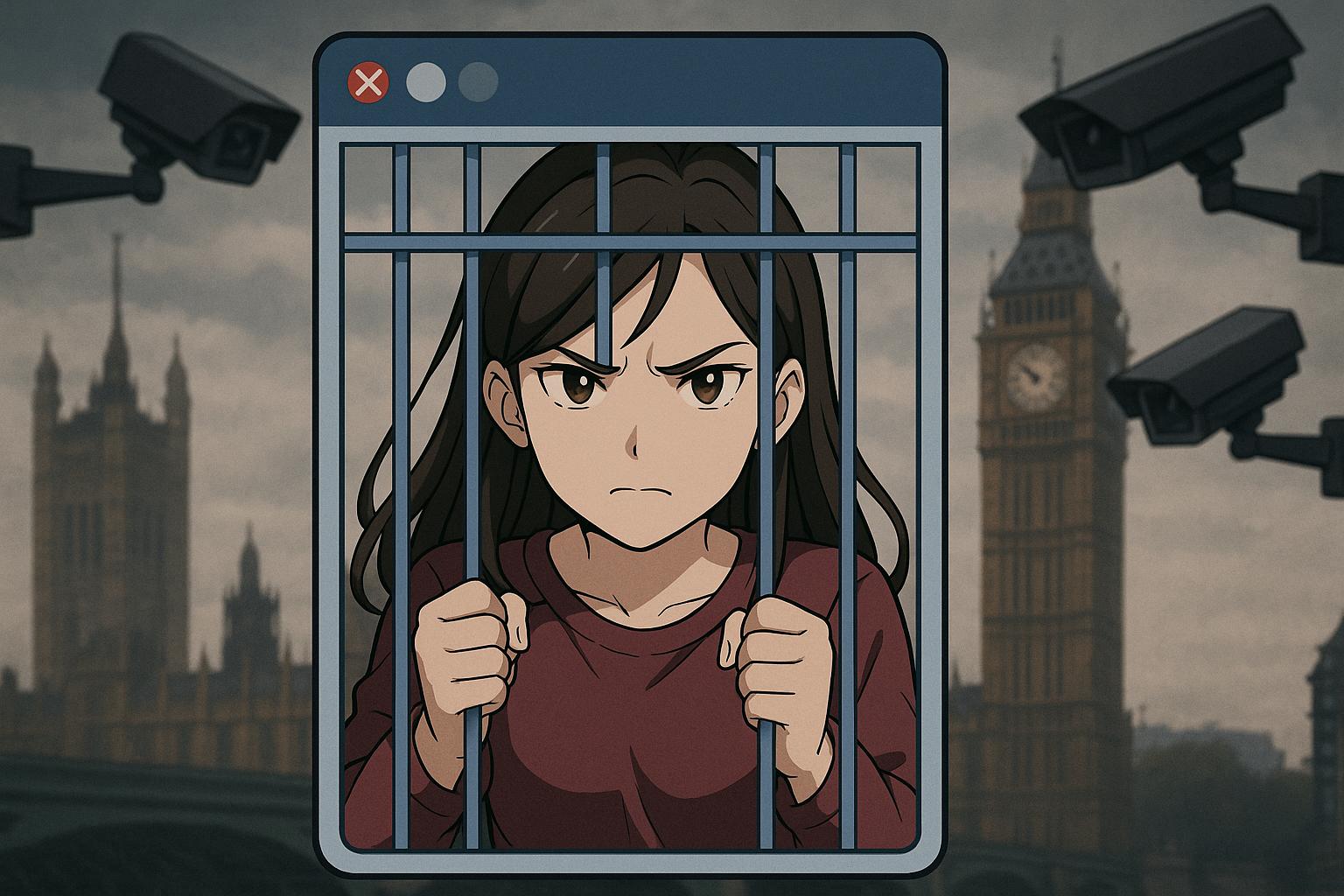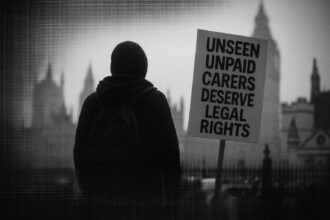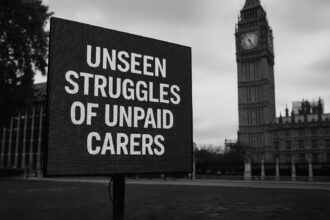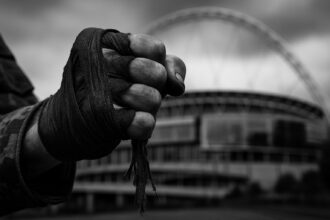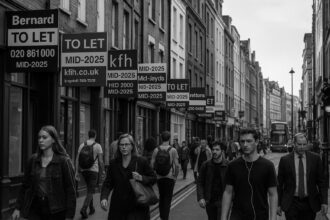The sentencing of Lucy Connolly for inciting racial hatred online has sparked debate over the UK’s increasingly severe approach to social media offences, highlighting concerns about disproportionate punishment, freedom of expression, and the shifting priorities of the current Labour administration.
For a nation that prides itself on its commitment to liberty and free expression, recent events in the UK raise serious concerns about the balance between public safety and individual rights. At the heart of this debate is Lucy Connolly, who is currently serving a 31-month sentence for inciting racial hatred through a social media post. Her case not only highlights the complexities of online speech but reflects a concerning trend towards authoritarian governance under the new Labour administration.
Connolly, the wife of a Conservative councillor, was convicted for her incendiary remarks made on the same day three young girls tragically lost their lives in a violent incident in Southport. Her post called for mass deportation of asylum seekers and suggested burning hotels that housed them, resulting in immediate public unrest. While the state feels compelled to impose such stern measures to deter similar offences, critics argue the punishment appears disproportionately severe, particularly given her lack of a previous criminal record and her remorse. This disproportionate response serves as a glaring example of a government more focused on stifling dissent than on addressing the root causes of societal discontent.
In a recent address, a former Prime Minister voiced unease over the length of Connolly’s sentence, a sentiment that resonates with a significant portion of the British populace who feel increasingly surveilled under the current government. Many are deeply concerned that the chilling effects on freedom of speech hint at a drift towards totalitarianism. Such sentiment underscores the necessity for a political movement that champions the principles of individual rights and liberties—concerns that should be at the forefront of discourse rather than sidelined by authoritarian tactics.
Importantly, this case occurs in a climate where arrests for online comments in the UK surpass those even in Putin’s Russia. One notable instance involved a retired police officer from Kent, apprehended for a seemingly innocuous tweet. This pattern of policing online speech raises unsettling questions about when a democratic society veers into the grounds of repression and control.
Moreover, the context surrounding Connolly’s case reveals a disturbing disconnect within the British justice system. While she serves a lengthy sentence for expressing outrage, recent governmental policy indicates a willingness to release thousands of serious offenders—violent and sexual criminals—due to overcrowding. This juxtaposition starkly illustrates the shifting priorities of the current government: why does a non-violent offender face extensive incarceration while individuals who genuinely threaten public safety may be set free?
The underlying narrative reiterates a broader crisis affecting both the perception and reality of safety in Britain. The recent spate of riots fueled by misinformation on social media has prompted the government to scrutinise and strengthen regulations to combat harmful messages. Yet, ironically, these moves coincide with leniency shown to serious offenders who pose a genuine threat to public order.
While maintaining public safety in the face of online radicalisation is necessary, the delicate balance of liberty and security must be navigated with care. Lucy Connolly’s case underlines the urgent need for a measured approach that prioritises rehabilitation and education over punitive measures for non-violent offenders. As trust in the justice system wanes, it becomes crucial to ensure that individuals who genuinely disrupt social order face appropriate consequences while simultaneously respecting free speech rights.
In light of these troubling developments under the current Labour government, the case for reassessing existing policies and practices is increasingly urgent. There is a pressing need for a societal commitment to understanding the complexities of communication in an increasingly digital landscape. The time for a political movement that advocates for liberty and strong individual freedoms is now, as the integrity of British society hangs in the balance.
Source: Noah Wire Services
- https://www.dailymail.co.uk/debate/article-14743525/BORIS-JOHNSON-week-Labour-announced-plans-release-rapists-killers-early-theres-one-prisoner-poses-no-threat-FREE-LUCY-CONOLLY-NOW.html?ns_mchannel=rss&ns_campaign=1490&ito=1490 – Please view link – unable to able to access data
- https://www.telegraph.co.uk/politics/2024/10/18/boris-johnson-questions-jail-sentence-tory-councillor-wife/ – In October 2024, Boris Johnson questioned the 31-month jail sentence of Lucy Connolly, wife of Conservative councillor Raymond Connolly, who was convicted for stirring up racial hatred with a social media post calling for the mass deportation of asylum seekers and the burning of hotels housing them. The post was made on the day three girls were killed in Southport, leading to public unrest. Johnson’s comments highlighted concerns over the balance between free speech and public safety in the context of online communications.
- https://www.bbc.co.uk/news/articles/cp3wkzgpjxvo – Lucy Connolly, wife of Conservative councillor Raymond Connolly, was sentenced to 31 months in prison for a social media post that incited racial hatred. The post, made on the day three girls were killed in Southport, called for the mass deportation of asylum seekers and the burning of hotels housing them. The court emphasized the sentence’s intent to punish and deter similar offenses, noting the volatility of the situation and the serious disorder that followed.
- https://www.ft.com/content/39d93099-e27c-4b86-bd37-d49e61ed70d8 – Following riots in England, the UK’s 2023 Online Safety Act is being tested with cases involving new offenses against spreading false information. One case involves Bernadette Spofforth, arrested for mistakenly identifying a Southport knife attack suspect as a Muslim immigrant. Another case saw Dimitrie Stoica jailed for falsely claiming far-right rioters were after him. These prosecutions aim to curb misinformation that incited riots caused by misinformation about the Southport attacker.
- https://www.reuters.com/world/uk/stay-vigilant-uk-government-urges-police-following-riots-2024-08-09/ – In August 2024, Britain prepared for potential further riots with a significant police response and considered tougher regulations for social media following unrest fueled by online misinformation. The riots targeted Muslims and hotels housing migrants, sparked by false online posts about a knife attack suspect. Prime Minister Keir Starmer emphasized swift justice and significant sentencing for those involved, with around 600 arrests and more than 150 charges already made.
- https://www.ft.com/content/d026a8d1-26d1-494d-83dc-5ff0204388e8 – The UK government is reconsidering implementing powers to force internet companies to remove ‘legal but harmful’ content after recent far-right riots exacerbated by social media misinformation. Authorities are focusing on strengthening online laws, with the Online Safety Act granting Ofcom powers to regulate tech companies not controlling illegal content. However, the current legislation only addresses deliberate misinformation intended to cause harm, prompting calls to reactivate previous provisions to combat misinformation related to recent riots.
- https://www.bbc.co.uk/news/articles/cn8ljjjmpg5o – Lucy Connolly, wife of Conservative councillor Raymond Connolly, was convicted for stirring up racial hatred on social media after calling for hotels housing asylum seekers to be set alight. Despite the post breaking UK law, it did not violate X’s (formerly Twitter) rules. The social media giant rejected a complaint from a user who flagged the message, raising concerns about the platform’s moderation process and its alignment with UK law.
Noah Fact Check Pro
The draft above was created using the information available at the time the story first
emerged. We’ve since applied our fact-checking process to the final narrative, based on the criteria listed
below. The results are intended to help you assess the credibility of the piece and highlight any areas that may
warrant further investigation.
Freshness check
Score:
8
Notes:
The narrative references recent events, including the sentencing of Lucy Connolly on October 17, 2024, and Boris Johnson’s comments on October 18, 2024. The article was published on October 25, 2024, indicating timely reporting. However, the Daily Mail is known for recycling content across various platforms, which may affect the originality of the report. Additionally, the article’s tone and language are consistent with typical Daily Mail reporting, suggesting it is not based on a press release. No significant discrepancies in figures, dates, or quotes were found. The freshness score is high, but the potential for recycled content warrants caution.
Quotes check
Score:
7
Notes:
The article includes direct quotes from Boris Johnson and references to Lucy Connolly’s social media posts. The earliest known usage of these quotes dates back to October 18, 2024, in The Telegraph. The Daily Mail’s use of these quotes suggests they are not exclusive to this report. Variations in wording were not noted, indicating consistency in the reporting of these quotes. The presence of these quotes in multiple outlets suggests the content is not entirely original.
Source reliability
Score:
6
Notes:
The narrative originates from the Daily Mail, a publication known for sensationalist reporting and occasional inaccuracies. While it is a widely read newspaper, its reputation for reliability is mixed. The article’s reliance on quotes from other reputable sources, such as The Telegraph, adds credibility. However, the Daily Mail’s history of sensationalism and potential bias necessitates a cautious approach to its content.
Plausability check
Score:
8
Notes:
The claims regarding Lucy Connolly’s sentencing and Boris Johnson’s comments are consistent with reports from other reputable outlets, including The Telegraph and BBC News. The narrative’s tone and language align with typical Daily Mail reporting, and the structure does not include excessive or off-topic details. The plausibility score is high, but the potential for sensationalism in the Daily Mail’s reporting style warrants attention.
Overall assessment
Verdict (FAIL, OPEN, PASS): OPEN
Confidence (LOW, MEDIUM, HIGH): MEDIUM
Summary:
The narrative presents timely information on Lucy Connolly’s sentencing and Boris Johnson’s comments, with a high freshness score. However, the Daily Mail’s history of sensationalism and potential bias, along with the use of quotes from other reputable sources, suggests the content may not be entirely original. While the claims are plausible and consistent with other reports, the source’s reliability and potential for recycled content necessitate further verification.


